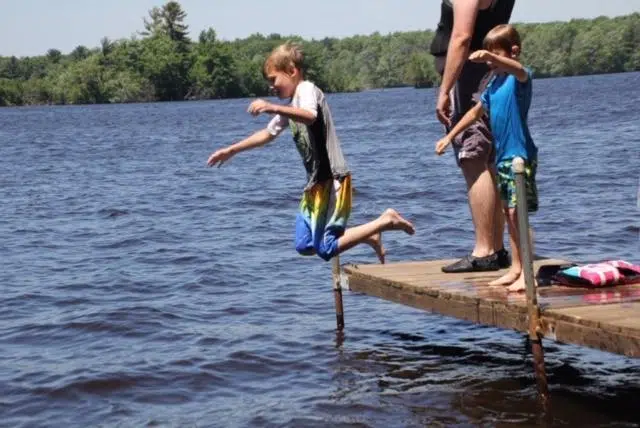RHINELANDER, WI (WSAU-WXPR) –People living on flowages in Wisconsin will have to keep waiting for the right to install piers to be protected by state law.
A proposed bill to extend pier-placement rights to waterfront flowage owners died in the state legislature this year. In Wisconsin, the land underneath flowages is often privately owned. In 2018, the state Supreme Court said flowage-bed owners could block waterfront homeowners from placing piers on the water.
The Wisconsin Realtors Association fought for a so-called “Protect Our Piers” bill, which would reverse that decision, but it died in the state Senate when COVID-19 hit.
“There was no reason to believe that it would not have passed. It was passed with bipartisan support in committees, passed with unanimous support in the Assembly, it didn’t cost anything to the state, didn’t have a fiscal impact. There’s no reason to believe that the bill would not have received unanimous support by the State Senate as well,” said Association Executive Vice President Tom Larson.
Larson said the group hopes to see the bill return. “[It’s at] the top of our priority list. This issue impacts thousands of waterfront property-owners across the state. It impacts property values. It impacts the tax base of local units of government,” he said.
The topic, now being considered at the state level, originated as part of a dispute in Price County. Dave Lobermeier ordered a neighbor, actually, his sister and brother-in-law, to remove their pier touching the flowage bed he owned on the Sailor Creek Flowage. “Then, me, knowing I’ve got property rights, I told them, I said, ‘Get the hell off my land.’ I told them to get their dock out,” Lobermeier told WXPR last winter.
The state Supreme Court said Lobermeier was in the right after overturning lower court decisions. If history is a clue, the Lobermeiers will fight hard to stop a new bill seeking to reverse the Supreme Court decision. “This is state-sanctioned trespass and destruction of property when the flowage bed is privately owned,” Butch Lobermeier told an Assembly committee this year.
To become law, the bill would have to be reintroduced next year and go through the committee process. It unanimously passed the Assembly but was never considered by the Senate.






Comments